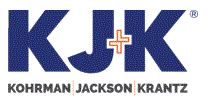Exhibit 1.1

| CHRISTOPHER J. HUBBERT| Partner Direct: 216.736.7215 | CJH@KJK.com |
VIA USPS AND EMAIL
July 14, 2021
Bowl America Incorporated
6446 Edsall Road
Alexandria, Virginia 22312
Attention: Cheryl A. Dragoo
Re: Objection to Proposed Merger Between Bowl America and Bowlero by A. Zucker
Dear Mrs. Dragoo:
On behalf of Anita G. Zucker I am filing with Bowl America Incorporated Mrs. Zucker’s objection pursuant to Maryland General Corporation Law (MGCL) § 3‑203(a)(1) to the proposed merger of Potomac Merger Sub, Inc. with and into Bowl America, with Bowl America surviving as an indirect wholly-owned subsidiary of Bowlero Corp. Mrs. Zucker’s objection to the merger relates to her 279,596 Bowl America Class A shares, 264,596 of which are held by the Article 6 Marital Trust and 15,000 by Mrs. Zucker personally.
Mrs. Zucker recognizes that Bowl America’s board has announced that only the holders of the company’s Class B common stock (the directors and other affiliates) have appraisal rights under Maryland law. In its proxy statement, the board stated that Bowl America’s Class A stockholders, like Mrs. Zucker, have no rights to demand and receive the fair value of their shares. The board claims this is because the Class A shares are listed for trading on the NYSE American stock exchange. This “market-out” exception is included in MGL § 3‑202(c)(1). The policy justification for the market-out exception is that the price of shares traded on a liquid, highly efficient market like the NYSE American will reflect the fair value of the stock prior to an acquisition. Of course, this rationale does not apply to an egregious takeunder like the proposed Bowlero merger, where Bowl America’s stockholders will receive less than the $10.50 Bowl America’s shares traded before the merger was announced. Instead, the Bowlero merger is actually depressing the value of Bowl America’s stock, nullifying the efficiency of the market.
Fortunately for Bowl America’s stockholders, MGL § 3‑202(d) contains an exemption to the market-out exception where, as here, the board has significant stock ownership and attempts to force a company’s stockholders into an unfair transaction. Bowl America’s Class B common stock allows the board to push the merger through even if every other stockholder of the company votes against it, effectively disenfranchising Bowl America’s stockholders. At the same time, the directors retain appraisal rights for their Class B shares and receive additional benefits such as your $550,000 golden parachute payments.
In previous letters to the company I have explained Mrs. Zucker’s objections to the Bowlero merger, which was the product of a deeply flawed process and grossly undervalues Bowl America. For these reasons, Mrs. Zucker strenuously objects to the merger and, if the board insists on proceeding with it, intends to exercise her appraisal rights to the fullest.
Please don’t hesitate to contact me if you have any questions regarding Mrs. Zucker’s objection to the merger.
Sincerely,
CHRISTOPHER J. HUBBERT
Partner | KJK
cc: John J. Wolfel, Foley & Lardner LLP
Brett I. Parker, CFO, Bowlero Corp.
James D. Meade, DLA Piper LLP (US)
CLEVELAND 1375 East Ninth Street One Cleveland Center + 29th Floor Cleveland OH 44114 | COLUMBUS 10 West Broad Street One Columbus Center + Suite 1900 Columbus OH 43125 | KJK.com A LAW FIRM BUILT FOR BUSINESS |

